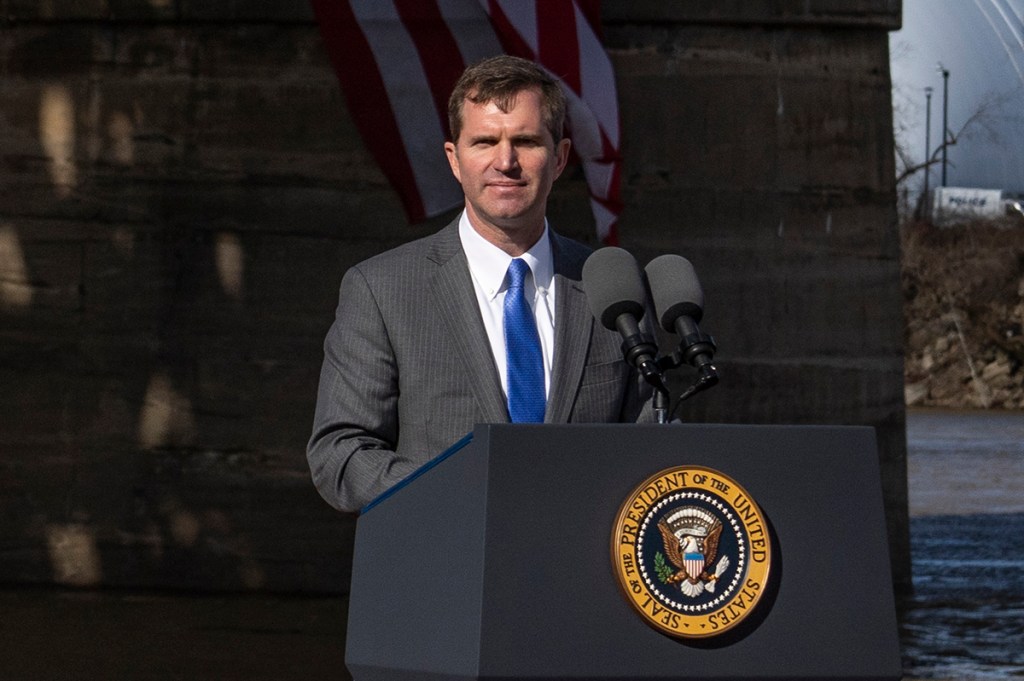The elections to watch in 2023
Some days it feels like the 2024 presidential race is already underway. Donald Trump launched his campaign more than six weeks ago; his biggest primary rival Ron DeSantis is watched like a hawk; and Biden appears to be taking steps to rebuild the coalition of voters he assembled in 2020.
But the long road to 2024 includes some important elections in 2023. They won’t decide whose in control in Washington, but they’ll count for a lot on a state level and help set the national political tone at the start of the 2024 cycle. Here are some of the races to keep an eye on this year.
Chicago’s mayoral race
It’d hard to call Lori Lightfoot’s time as mayor of Chicago a roaring success. The first-term leader of America’s third largest city has overseen surging violent crime and Covid-era economic travails, including the departure of many of the city’s high-profile businesses. It’s a nonpartisan race with the top two candidates entering a runoff if no one secures a majority — and at the moment polls show Lightfoot stuck in third or fourth place.
Kentucky governor’s race
Andy Beshear is that increasingly rare thing: a Democratic governor of a red state. That makes his fight for re-election the most interesting of the handful of gubernatorial contests this year. The contest will pit Beshear’s strong ratings (one poll last year found him to be the most popular Democratic governor in the country) against the solidly Republican make-up of the state’s electorate.
It will also be a telling study in what Democrats see to be their winning message with independents in 2023 and beyond. Biden visited the state last week, preaching a gospel of bipartisan pragmatism and economic growth.
Virginia General Assembly
Control of both chambers of Virginia’s legislature will be determined in November. Republicans will be hoping that they can build on the momentum of two years ago, and capture the State Senate to secure a sweep of the two legislative bodies and the governor’s mansion. Doing so would give Glenn Youngkin, already a rising star, the opportunity to flesh out a Republican agenda that has broad appeal. Democrats will be hoping to demonstrate that 2021’s poor showing was a blip in a state that had been getting bluer for years. (It’s a similar dynamic in New Jersey, where the legislature is also on the ballot this year and where the GOP outperformed expectations in 2021.)
Wisconsin Supreme Court
Conservative Justice Patience Roggensack’s retirement from the Wisconsin Supreme Court sets up a high-stakes contest to replace her. At present, conservatives have 4-3 control — meaning control of the court is up for grabs. Expect abortion and election laws to feature prominently.
Louisiana governor’s race
Like Beshear, Louisiana governor John Bel Edwards is a Democrat running a red state. But he is term-limited meaning an open seat is up for grabs. Bel Edwards — a pro-life Democrat — proved a formidable opponent, so Republicans will expect to capitalize on their advantages in this conservative state. The front-runner for the GOP nomination is the state’s attorney general Jeff Landry, who has already announced his run.
*** Sign up to receive the DC Diary in your inbox here ***
Biden’s classified conundrum
Joe Biden yesterday expressed his “surprise” at the news that classified documents were discovered in his office at the University of Pennsylvania. The discovery is an awkward one for Biden given the ongoing investigation into the classified files found at Trump’s Mar-a-Lago office.
There are important difference between the two cases: Trump appears to have held many more documents than Biden’s think tank; Biden’s lawyers claim they handed over the documents as soon as they came across them, while Trump knowingly clung on to his for months; and Trump’s lawyers appear to have claimed their client no longer had any classified material when they knew that wasn’t true.
With the caveat that there’s still a lot we don’t know about the Biden case, Charles Lipson notes that it will come at a political cost for the president, offering Republicans an easy response to any charges brought against Trump. Even if, as Lipson explains, “Trump’s bigger problem may not be withholding documents but lying about them.”
Solidarity with C-Span
Last week I noted the democratic delight that was the work of C-SPAN’s camera operators during the speaker vote drama. And I wasn’t the only one wondering whether this temporary treat might become permanent. C-SPAN co-CEO Susan Swain has written to Kevin McCarthy requesting that he allow the free-for-all to continue “or at least revisit the rules that permit C-SPAN and other independent journalists to cover key legislative sessions.” McCarthy’s office have not commented on the request.
What you should be reading today
Matthew Foldi: Behind the scenes of the Kevin McCarthy negotiations
Charles Lipson: What 2023 will bring for the war in Ukraine
David Marcus: How have our politicians gotten so bad at lying?
Audrey Fahlberg, the Dispatch: Inside the Club for Growth’s push for Kevin McCarthy
William Galston, Wall Street Journal: The dilemma of the House’s working class Republicans
Washington Free Beacon: The House rules that do — and don’t — matter
Poll watch
President Biden job approval
Approve: 43.5 percent
Disapprove: 51.7 percent
Net approval: -8.2 (RCP average)
Proportion of ___ who think companies should take a stance on current events
Americans: 48 percent
Democrats: 75 percent
Republicans: 18 percent
Independents: 40 percent (Gallup/Bentley)





















